On Oct. 7, a darkness unseen in generations unleashed itself on the Land and People of Israel, the ripples of which continue to reverberate throughout the Jewish world. More than 1,200 men, women and children slaughtered in cold blood, thousands injured, and hundreds more taken hostage by a brutal, genocidal enemy, followed by an international wave of unabashed antisemitism and Jew-hatred.
It is no secret that times are difficult for the Jewish people, no matter where they find themselves. Which begs the question: How will Chanukah, with its emphasis on the public display of the lights of the menorah, be celebrated this year?
The surprising answer is that while in the past, the reaction of many Jews to such frightening developments may have been to hide their Jewishness, the post-Oct. 7 Jewish communal response has bucked all precedents. Indeed, a recent Chabad.org survey of rabbis found that while 81.5% of respondents reported community members feeling increasingly “scared,” 85.8% were experiencing a “deeper connection to their own Jewish identity.” Meaning, Jews are in ever-greater numbers choosing not to cower but celebrate their identity this Chanukah, which begins on Thursday night, Dec. 7, and continues through Friday, Dec. 15.
This year has seen a surge in public Chanukah displays and Jewish pride, with many more individuals planning to light their menorahs in visible places, such as their doors or windows, with more confidence and resolve than ever before. During these eight days, Chabad-Lubavitch will reach an estimated 8 million Jews—more than half the worldwide Jewish population.
It is no accident that this year marks 50 years since the Rebbe—Rabbi Menachem M. Schneerson, of righteous memory—launched his worldwide Chanukah campaign, bringing the “Festival of Lights” into thousands of homes, army bases and wherever else Jews find themselves. The Chanukah lights “demonstrate at once even to the physical eye … that the light goes on in the Jewish home even when it is dark and gloomy in the outside world … ,” he wrote. “[A] Jew must not permit himself to be overawed by the darkness outside, but must illuminate his home,” not resting there but letting “the light shine forth ‘outside’ … .”
It was more than 30 years ago when Rabbi Boruch Klar first heard the Rebbe speak about the importance of lighting menorahs in public places, and Klar has been producing large-scale menorahs for homes and businesses ever since. This year, he tells Chabad.org, he is selling more giant menorahs than ever before.
“Customers old and new are wanting to show support for their fellow Jews in Israel and at home, and doubling down on the effort to spread light,” says Klar, who directs Lubavitch Center of Essex County in West Orange, N.J., with his wife, Devorah. “More people around the world than ever before will be lighting large menorahs at front lawns, businesses, malls, universities, synagogues, airports, army bases, shopping centers and sports stadiums. It’s inspiring.”
Large menorahs will be displayed in front of landmarks around the world, including the White House, the Eiffel Tower and the Brandenburg Gate, where German Chancellor Olaf Scholz is slated to help light Berlin’s public Chanukah menorah—Europe’s largest—on Thursday evening, sending a “powerful message of solidarity” with the Jewish people. The ceremony will be broadcast live on Chabad.org on Thursday, Dec. 7 at 9 a.m. (EST)
Around the world, more than 700,000 menorah kits and 2.5 million holiday guides in 17 languages are already being distributed for home, classroom and office use. The streets will be taken, too: Around 5,000 menorah-topped cars will be driving around cities, towns and rural areas all over the globe.
In Detroit, which has experienced growing antisemitism in recent months, Jews of all backgrounds and ages from the metropolitan area will be joined this year by families of Israelis still held hostage in Gaza.
Sherri Cherman of Los Angeles says she is looking forward to attending the Chabad-sponsored Chanukah celebration at CBS Studios on Sunday. “I think Chanukah is an important time for Jewish people to be together as a family, to learn about our shared history and celebrate that miracles can happen,” she says.
"Jews are in a particularly difficult place this year, between the war, rising antisemitism, and other issues,” says Cherman. “I think it’s important to know that good things can happen even during bad times, but we also have to be very aware and mindful of what’s happening in the world.”
Chabad.org, the largest Jewish information website, is poised to see record-breaking traffic to its Chanukah site: Chanukah.org. The site offers an extensive selection of guides, videos, songs, insights, recipes and customs. Included on the site, at Chanukah.org/Events, is the world’s largest Chanukah directory, which features events in hundreds of cities around the world and is constantly being updated.
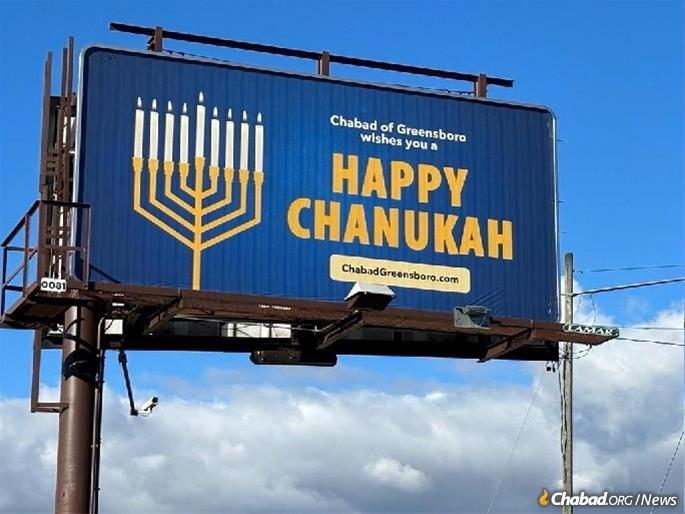
Chanukah in Israel and Gaza
In Israel, immersed in and traumatized by war—and continuously praying for the safety of the hostages, the Israel Defense Forces troops, and communities south and north under rocket attacks from the Hamas and Hezbollah terror organizations—people from all walks of Jewish life are looking forward to some special moments of Jewish joy throughout the eight days of Chanukah.
Every Chanukah, the Chabad Youth Organization in Israel sends thousands of young men and women to every corner of the Holy Land to help emissaries in the more than 300 Chabad centers in Israel bring the light of Chanukah to the nation. This year, special focus is being given to activities in places where the joy and light of Chanukah is most urgently needed: in hospitals, on military bases and for troops on the front lines in Gaza and northern Israel, and for Israelis displaced by the war.
“This year we are preparing for a number of unique activities,” says Rabbi Levi Mendelsohn, who is coordinating activities for the Chabad Youth Organization’s United Front, directed by Rabbi Joseph Aharonov.
“With more than 250 war-wounded soldiers expected to be hospitalized on Chanukah, we will hold parties for every one of them and their families,” says Mendelsohn. “We will light the menorah with each of them, and we will celebrate together. We will be doing the same for every released hostage who is still hospitalized.”
“Wherever there are soldiers—at every base and at every outpost—Chabad emissaries will arrive with the menorah, the doughnuts, and especially, with simcha (‘joy’),” Mendelsohn continues. “Every soldier will experience the light of Chanukah. There will be more than 30 menorahs inside the Gaza Strip, with the fighting battalions all along the Strip.”
The first giant menorah has already been put into Gaza by a group of Chabad emissaries who serve in the IDF as reserve soldiers. In addition, Chabad will also distribute personal Menorahs and donuts to the over 10,000 Israeli soldiers now being deployed in Gaza.
Special Chanukah celebrations for the 200,000 displaced residents of border communities and for hard-hit cities are also underway. “We spread the light of Chanukah in Ashkelon every year, but this year, we’ll have a menorah in the lobby of every apartment building in the city,” says Rabbi Menachem Lieberman, director of Chabad of Ashkelon, which has been subject to daily attacks from nearby Gaza. Many of the city’s children have been traumatized by the daily rocket attacks on the city, and special events and parties are being arranged on their behalf.
In the southernmost city of Eilat—temporary home to 70,000 of the displaced Israelis—Chabad of Eilat is preparing daily lightings and Chanukah parties at the city’s hotels-turned-homes for the displaced, the celebrations focused especially on children and teens from communities along the Gaza border. In central Israel, Rabbi Tzvi Wilhelm and the staff at Chabad of Netanya are arranging special Chanukah events for families evacuated from Metulla, Kiryat Shmona and towns along the Lebanon border, and for the thriving coastal city’s Hebrew-, English-, Russian- and French-speaking Jewish residents who have welcomed displaced families into their community.

Providing for Jews in Ukraine
Throughout war-torn Ukraine, a network of hundreds of Chabad-Lubavitch emissaries and volunteers are again working to ensure that beleaguered residents are able to celebrate the Festival of Lights. More than 40,000 Chanukah kits filled with holiday supplies and special treats are being distributed to Jews in every city and village throughout Ukraine thanks to the work of the JRNU (Jewish Relief Network Ukraine), Chabad’s boots on the ground aid network in Ukraine. The kits include a menorah, candles, dreidels, a Chanukah book for children, chocolate gelt, a Swiss chocolate bar and more.
Chana Axelrod, who co-directs Chabad of Cherkassy with her husband, Rabbi Dov Axelrod, says that more than 180 people gathered at the Jewish community center late last week to collect a menorah for their home and to receive food for the holiday, thanks in part to the Jewish Relief Network Ukraine.
In Kharkov, Jews gathered at the Choral Synagogue this week to pack more than 1,000 food- and Chanukah-care packages that will be distributed to those in need throughout the city so that they have what they need before the holiday starts on Thursday evening.
The packing program was followed by a Chassidic farbrengen for the entire Jewish community, that focused on joyful singing and Chassidic teachings on the meaning of Chanukah, and the job of every Jew to transform darkness into light, especially on the Chanukah, the Festival of Lights, and especially this year.
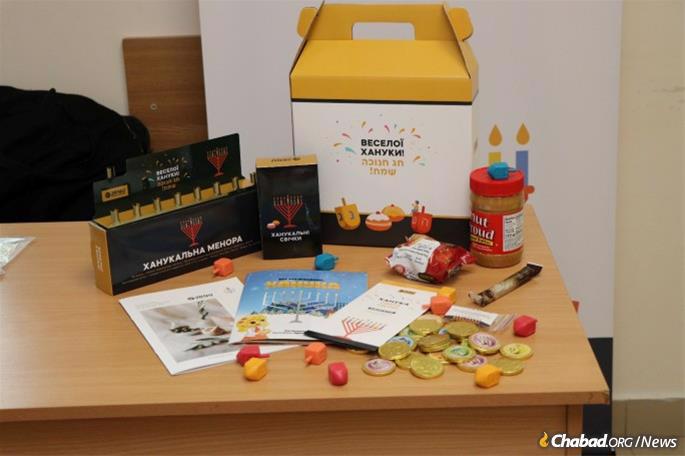
Writing from Gaza, Rabbi Dovid Shatz, an IDF reservist involved in bringing the light of menorahs to Jewish soldiers on the the front lines of battle, noted how the Rebbe spoke many times of the importance of encouraging and inspiring IDF soldiers, and making them happy, and personally participated in the expenses of doing so.
“Bringing the menorahs into Gaza is not a simple operation at all,” said Shatz. “It requires special permits and the strong ties Chabad has developed with the army over many decades. They realize that this is the most important thing to do right now, to spread the light and joy of Chanukah—a miraculous, victorious light like that in the days of the Hasmoneans, a light that transcends all challenges.”
Noa Amouyal, Bruria Efune, Faygie Levy Holt and Karen Schwartz contributed to this report.

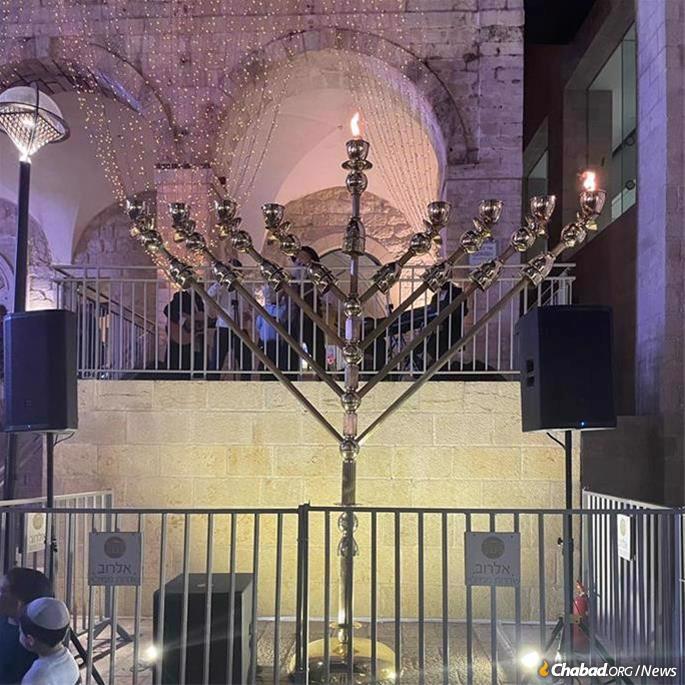
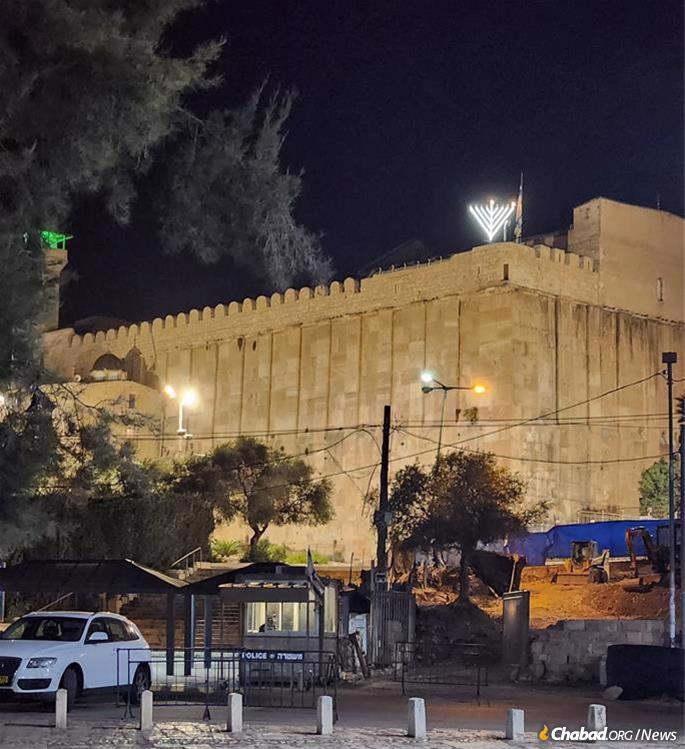


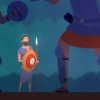
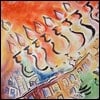


Join the Discussion